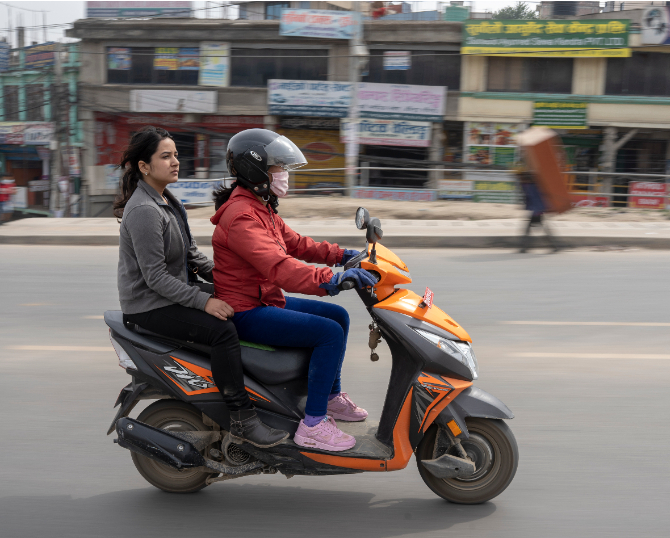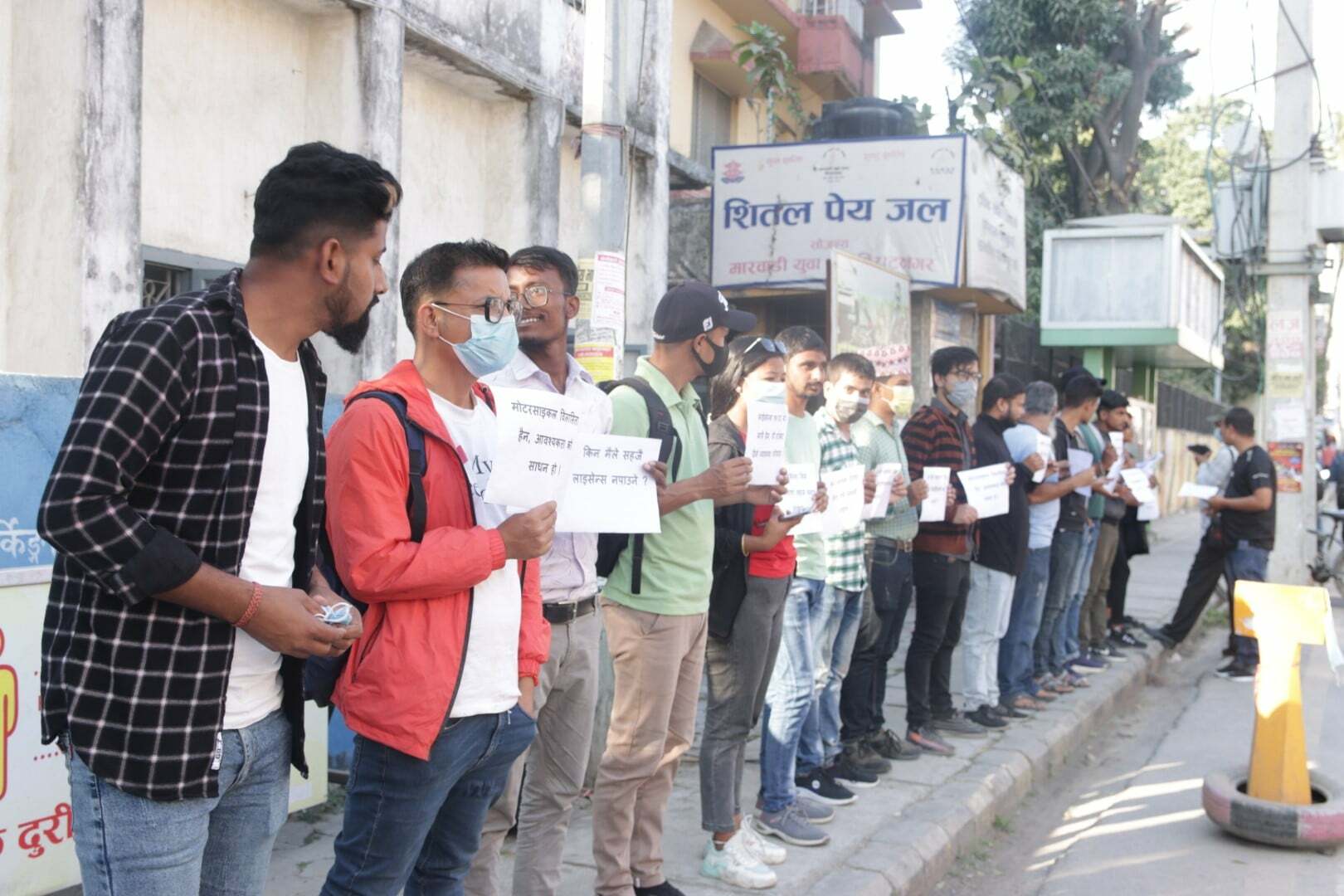Unleashing Entrepreneurship
Mobilizing Against Corruption


In Nepal, motorbikes serve as a vital and affordable means of transportation, enabling millions of people to get to school, work, or earn an income by riding with a paying passenger on board. For years, however, the government bureaucracy was incapable of supplying operator licenses in a timely manner to everyone who sought one. Unable to wait years just to get an appointment to apply for a license, riders were faced with a choice: give up their livelihood or take to the streets without a license and face the consequences.
Many people chose the latter option and ended up paying the price.
Recognizing the dire circumstances faced by these individuals, Bikalpa—An Alternative, an Atlas Network partner organization based in the city of Biratnagar in Koshi Province, took action to get people on the road legally.
Red tape impeding livelihoods
Basanta Adhikari, founder and chairperson of Bikalpa, believes that much of the issue stems from weak and often corrupt institutions. “The International Transparency Report shows that the government of Nepal is very corrupt and we are very weak in rule of law,” he said. “Our system is not accountable. The public servants don’t believe that they are servants. They behave like they are a master of the public.”
This attitude led to strict requirements for those seeking a license to operate a motorcycle, but slow-moving and ill-equipped government bureaucracy. In Bikalpa’s local province, only a few offices were available to serve millions of people, a pattern repeated across Nepal. Individuals without the means to pay expensive bribes—up to ten times the usual government fee—to get around the official process found themselves enduring lengthy waiting periods of up to three years to get a license.
Unlicensed drivers could be apprehended by police any time they ventured onto the road. When pulled over, they were compelled to pay hefty fines and bribes and endure harassment. If they were involved in an accident, they could be sent to jail, even if they were not at fault for the accident.
Advocating for a change
Basanta and the team at Bikalpa believed that the government’s failures were stripping citizens of their rights and stifling innovation.
“It was taking freedom from the people. It was discouraging people from pursuing their livelihood,” Basanta said. ”So we felt that this was injustice, and we needed to step in and speak up on this issue.”
Bikalpa quickly realized that better motorbike policy would lead to greatly expanded personal and economic freedom for Nepalis. They conducted research on the taxes and tariffs imposed on motorcycles and the restrictions placed on riders, and they created short films highlighting the harm created by a broken licensing system. The videos quickly went viral, earning millions of views.
Bikalpa conveyed their concerns to the Ministry of Transport and urged for necessary reform. Officials promised to meet with the organization to discuss solutions but failed to follow through on their assurances. Not content to let the issue rest, Bikalpa called for peaceful demonstrations in the streets to draw attention to the issue.
“To highlight the issue, we called for a street campaign. Many people joined us,” Basanta explained. “And it drew the attention of national media, local media, YouTubers, and many more. The videos broadcast by the local television and YouTube were viewed by more than half a million people. That created pressure on the authorities.”
The video footage shared by the media showcased the public’s overwhelming frustration with the authorities and their perceived lack of action. In response to this compelling media coverage, the head of the Ministry of Transport was compelled to issue a directive to improve services for the public.

From a three-year wait to two weeks
By forcing the provincial government to acknowledge and address the injustice it had created, Bikalpa’s efforts brought about more than just policy change—they changed the way policymakers think about their duty to Nepalis. Just a year ago, the government operated only two license service centers in Koshi Province. Today there are nine.
The process of obtaining a license has also become markedly easier, with reduced costs and a streamlined process that guarantees approval within two weeks. For 4.5 million potential riders and passengers, this means simple and accessible transportation free from harassment and abuse by police.
Atlas Network has recognized Bikalpa—An Alternative’s impact and helped equip them to achieve even more. Bikalpa was named one of Atlas Network’s 2023 Smart Bets partners, granting them access to the accelerator program’s unique institutional development programs and grant opportunities. At Asia Liberty Forum 2023 in Kuala Lumpur, Bikalpa was announced as the winner of the 2023 Asia Liberty Award. They are also a finalist for Atlas Network’s prestigious 2023 Templeton Freedom Award.
Basanta acknowledges that challenges remain in Nepal, but his team’s success has proven how much they can achieve. “It was our advocacy that has helped other people to get their license and pursue their livelihood,” he said. “And it's a proud moment when people say, ‘you people always had our back.’ To raise the issue. To highlight the issue. To create a discourse in society. It encourages you to do more. You feel, yes, you are important. You feel that, yes, we are doing something right.”